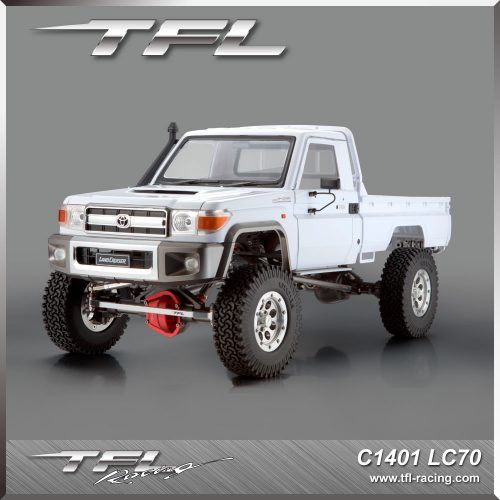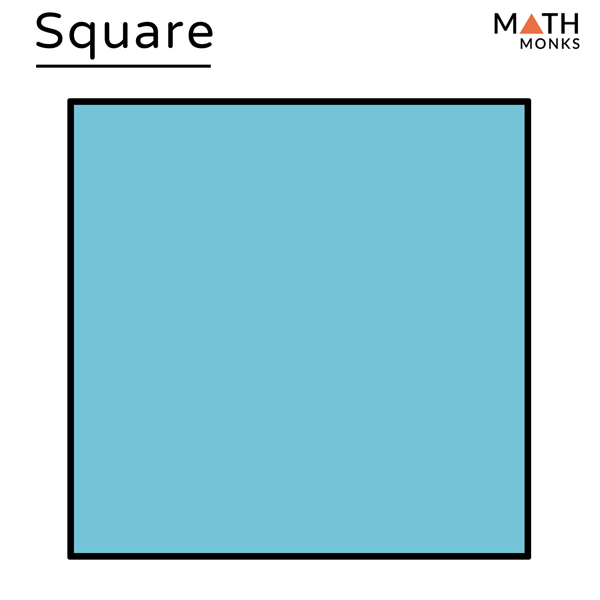3/4 Ton Trucks For Sale In Indiana: Your Comprehensive Buyer’s Guide
3/4 Ton Trucks For Sale In Indiana: Your Comprehensive Buyer’s Guide cars.truckstrend.com
Indiana, with its bustling agricultural sector, diverse industries, and a populace that values rugged utility for both work and recreation, presents a robust market for pickup trucks. Among the various classes, the 3/4 ton truck stands out as a true workhorse, perfectly bridging the gap between the everyday convenience of a half-ton and the uncompromising might of a one-ton. Also known by their manufacturer designations like the Ford F-250, Ram 2500, Chevrolet Silverado 2500HD, and GMC Sierra 2500HD, these vehicles offer an unparalleled blend of towing capacity, payload capability, and everyday drivability. For anyone in the Hoosier State considering a significant upgrade in their hauling power, understanding the nuances of the 3/4 ton market in Indiana is crucial. This comprehensive guide will navigate you through everything you need to know, from defining these powerful machines to finding the perfect one for your needs right here in Indiana.
Understanding the 3/4 Ton Truck: What Makes Them Special?
3/4 Ton Trucks For Sale In Indiana: Your Comprehensive Buyer’s Guide
A 3/4 ton truck is more than just a larger pickup; it’s engineered for serious work. The "3/4 ton" designation historically referred to its payload capacity (1,500 lbs), though modern trucks far exceed this. Today, these vehicles typically boast a Gross Vehicle Weight Rating (GVWR) ranging from 8,500 to 10,000 pounds, allowing for significantly higher payloads (often 3,000-4,000 lbs or more) and impressive towing capacities (ranging from 12,000 to over 20,000 lbs, especially with a gooseneck/fifth-wheel setup).
What sets them apart?
- Robust Construction: They feature stronger, heavier-duty frames, often fully boxed, designed to handle immense stress.
- Enhanced Suspension: Stiffer springs, larger shock absorbers, and sometimes auxiliary helper springs provide stability under heavy loads.
- Powerful Powertrains: While gasoline V8s are standard, many 3/4 ton trucks offer powerful turbodiesel engines (like Ford’s Power Stroke, Ram’s Cummins, or GM’s Duramax). These diesels deliver massive torque, making them ideal for heavy towing and improving fuel economy when loaded.
- Larger Brakes and Drivetrains: Bigger brake components, more robust axles, and heavy-duty transmissions ensure safety and durability when hauling maximum weight.

Compared to a half-ton, a 3/4 ton offers a substantial leap in capability, making it suitable for larger RVs, heavy equipment trailers, and commercial applications. While a one-ton might offer even more capacity, the 3/4 ton often strikes a better balance for those who need serious power without the often-excessive size and potentially rougher ride of a dually or larger commercial truck.
Why Indiana is Prime for 3/4 Ton Trucks
Indiana’s diverse landscape and economy create an ideal environment for 3/4 ton trucks:
- Agriculture: As a leading agricultural state, Hoosier farmers frequently need to tow large trailers filled with livestock, grain, or farm equipment. A 3/4 ton truck provides the necessary muscle without being as cumbersome as a dedicated semi.
- Construction & Trades: From general contractors to electricians, plumbers, and landscapers, many small businesses in Indiana rely on these trucks to transport tools, materials, and machinery to job sites across varied terrains.
- Recreational Activities: Indiana’s numerous lakes, reservoirs, and state parks make it a haven for outdoor enthusiasts. Boaters, RV owners, and those with horse trailers find 3/4 ton trucks indispensable for safely transporting their leisure equipment.
- Rural and Suburban Utility: Beyond heavy hauling, the robust nature of these trucks makes them excellent for navigating Indiana’s rural roads, handling light snow plowing, and generally being prepared for anything life throws their way, from hauling firewood to moving furniture.
- Weather Resilience: The heavy-duty components and available four-wheel drive make 3/4 ton trucks well-suited to Indiana’s changing seasons, including navigating snowy conditions with greater confidence.
Navigating the Market: Where to Find 3/4 Ton Trucks in Indiana
Finding the right 3/4 ton truck in Indiana involves exploring several avenues, each with its own advantages:
1. New & Used Dealerships
- Pros: Wide selection, financing options, warranties (new and certified pre-owned), trade-in opportunities, professional service departments. Many dealerships in major cities like Indianapolis, Fort Wayne, Evansville, South Bend, and Bloomington specialize in popular truck brands.
- Cons: Generally higher prices, especially for new models.
- Tip: Visit authorized dealerships (Ford, Ram, Chevrolet, GMC) for the best selection of new models and certified pre-owned trucks that have undergone rigorous inspections. Independent used car dealerships also offer a wide range of makes and models.
2. Private Sellers
- Pros: Often the lowest prices, direct negotiation, potential for a well-maintained vehicle from an owner who knows its history.
- Cons: No warranty, "as-is" sales, more due diligence required (inspections, title checks).
- Platforms: Craigslist, Facebook Marketplace, local classifieds, and even "for sale" signs in front of homes.
3. Online Marketplaces & Aggregators
- Pros: Vast inventory from both dealerships and private sellers across the state (and beyond), detailed listings, comparison tools, saved searches.
- Examples: AutoTrader.com, Cars.com, CarGurus.com, Edmunds.com. These sites allow you to filter by location, make, model, year, and specific features, making it easy to narrow down 3/4 ton options.
4. Auctions
- Pros: Potential for extremely low prices. Government, fleet, and public auto auctions can offer significant savings.
- Cons: High risk, often no opportunity for thorough inspection, "buyer beware" rules, may require cash payment.
- Tip: Best for experienced buyers or those who can bring a mechanic for a quick pre-auction assessment.
Key Considerations When Buying a 3/4 Ton Truck in Indiana
Purchasing a 3/4 ton truck is a significant investment. Here’s what to keep in mind:
-
Define Your Needs:
- Intended Use: Will you be towing a large RV, a gooseneck trailer, or just hauling lumber? Understand the Gross Combined Vehicle Weight Rating (GCVWR) of your trailer and cargo to ensure the truck can handle it.
- Payload: How much weight will you regularly carry in the bed?
- Cab Style: Regular Cab (2 doors), Extended Cab (2-3 doors, small rear seats), or Crew Cab (4 full doors, spacious rear seats)? Crew cabs are popular but also longer and heavier.
- Bed Length: Short bed (around 6.5 ft) or long bed (around 8 ft)? Long beds are essential for fifth-wheel towing and larger cargo.
- Four-Wheel Drive (4×4): Highly recommended for Indiana’s winters, off-road use, or launching boats.
-
Budget:
- Purchase Price: This is just the beginning.
- Fuel Costs: Diesels are more fuel-efficient when working hard but have higher per-gallon costs. Gasoline engines might be cheaper upfront but consume more fuel, especially when towing.
- Insurance: 3/4 ton trucks generally have higher insurance premiums due to their value and repair costs.
- Maintenance: Diesel engines, while long-lasting, often have higher maintenance costs (e.g., oil changes, fuel filters) and more expensive repairs if issues arise.
-
Condition & History (for Used Trucks):
- VIN Check: Absolutely essential. Use services like CarFax or AutoCheck to look for accident history, service records, odometer discrepancies, and previous ownership.
- Pre-Purchase Inspection (PPI): Have a trusted, independent mechanic perform a thorough inspection, especially if buying from a private seller. This can uncover hidden issues with the engine, transmission, frame, suspension, and brakes.
- Rust Inspection: Indiana’s climate and road salt can lead to rust. Pay close attention to the frame, brake lines, body panels, and wheel wells. Surface rust on the frame is common, but significant structural rust is a deal-breaker.
- Test Drive: Drive the truck empty and, if possible, with a load. Listen for unusual noises, check braking performance, and feel for smooth transmission shifts. Test all features (AC, lights, 4×4, trailer brake controller).
-
Fuel Type: Gasoline vs. Diesel:
- Gasoline: Lower upfront cost, simpler maintenance, quicker warm-up in cold weather. Good for occasional heavy hauling and daily driving.
- Diesel: Higher torque, better fuel economy when towing, incredible longevity (often 300,000+ miles), higher resale value. Ideal for frequent, heavy towing. Comes with higher initial cost, more complex emissions systems, and higher maintenance expenses.
-
Trim Levels & Features:
- 3/4 ton trucks range from basic work trucks (e.g., Ford XL, Ram Tradesman, Chevy Work Truck) to luxurious models (e.g., Ford Platinum, Ram Limited, Chevy High Country). Decide which features are essential for your comfort and work. Key features to consider include trailer brake controllers, integrated towing cameras, power mirrors, navigation, and robust infotainment systems.
Financing and Insurance for Your Indiana 3/4 Ton Truck
- Financing: Explore options from dealership financing, local banks, and credit unions. Get pre-approved for a loan to understand your budget and leverage it in negotiations.
- Insurance: Contact multiple insurance providers for quotes. Factors affecting your premium include the truck’s value, your driving record, intended use (personal vs. commercial), and the level of coverage. Due to their higher value and greater potential for damage, 3/4 ton trucks typically cost more to insure than half-tons.
- Registration & Taxes: Be aware of Indiana’s specific title, registration, and sales tax requirements.
Representative Price Table: 3/4 Ton Trucks For Sale In Indiana (Estimates)
Please note: Prices are highly variable based on mileage, condition, specific trim level, options (e.g., diesel engine, 4×4, luxury packages), and the current market. This table provides estimated ranges for trucks available in Indiana. Always verify current market prices.
| Make/Model | Year Range | Condition | Estimated Price Range (USD) | Key Features / Notes |
|---|---|---|---|---|
| Ford F-250 Super Duty | 2020-2024 | New/Used | $55,000 – $95,000+ | Latest tech, available 7.3L Godzilla gas V8 or 6.7L Power Stroke Diesel. High towing capacity. |
| 2017-2019 | Used | $35,000 – $55,000 | Aluminum body, 6.2L gas V8 or 6.7L Power Stroke Diesel. Good value for modern features. | |
| 2011-2016 | Used | $20,000 – $35,000 | 6.2L gas V8 or 6.7L Power Stroke Diesel. Reliable workhorses. | |
| Ram 2500 | 2019-2024 | New/Used | $50,000 – $90,000+ | Revamped interior, available 6.4L HEMI gas V8 or 6.7L Cummins Diesel. Coil-spring rear suspension offers smoother ride. |
| 2013-2018 | Used | $30,000 – $50,000 | Available 5.7L/6.4L HEMI gas V8 or 6.7L Cummins Diesel. Solid performance, older tech. | |
| 2008-2012 | Used | $18,000 – $30,000 | Mostly 6.7L Cummins Diesel or older HEMI. Classic Ram styling. | |
| Chevy Silverado 2500HD | 2020-2024 | New/Used | $50,000 – $90,000+ | Aggressive styling, available 6.6L gas V8 or 6.6L Duramax Diesel. Integrated steps for bed access. |
| 2015-2019 | Used | $32,000 – $52,000 | 6.0L gas V8 or 6.6L Duramax Diesel. Proven reliability, more traditional interior. | |
| 2007-2014 | Used | $18,000 – $32,000 | 6.0L gas V8 or 6.6L Duramax Diesel. Older body style, but durable. | |
| GMC Sierra 2500HD | 2020-2024 | New/Used | $55,000 – $95,000+ | Similar to Silverado 2500HD, but with premium styling and MultiPro Tailgate. |
| 2015-2019 | Used | $35,000 – $55,000 | Similar to Silverado 2500HD, professional-grade styling. | |
| 2007-2014 | Used | $20,000 – $35,000 | Older body style, but durable, professional-grade. |
Frequently Asked Questions (FAQ)
Q1: What’s the main difference between a 3/4 ton and a 1-ton truck?
A1: The primary difference lies in their Gross Vehicle Weight Rating (GVWR) and Gross Combined Weight Rating (GCWR). A 1-ton truck (like an F-350, Ram 3500, Silverado 3500HD) has a higher GVWR (typically over 10,000 lbs) and thus higher payload and towing capacities than a 3/4 ton. One-tons often come with stronger axles, more robust suspension components, and are more commonly available with dual rear wheels (duallies) for maximum stability with heavy loads.
Q2: Can I use a 3/4 ton truck as a daily driver?
A2: Yes, many people do. Modern 3/4 ton trucks offer comfortable interiors, advanced features, and decent ride quality (especially Ram with its coil-spring rear suspension). However, they are larger, less fuel-efficient than smaller vehicles, and can be more challenging to maneuver and park in urban environments.
Q3: Is diesel or gasoline better for a 3/4 ton truck?
A3: It depends on your primary use.
- Diesel: Ideal for frequent, heavy towing or hauling, as they offer superior torque, better fuel economy under load, and often a longer lifespan. They come with a higher purchase price and potentially higher maintenance costs.
- Gasoline: More affordable upfront, simpler maintenance, and quicker warm-up. Best for occasional towing, lighter hauling, or if the truck will spend more time unladen as a daily driver.
Q4: What should I look for when inspecting a used 3/4 ton truck for rust in Indiana?
A4: Due to Indiana’s use of road salt in winter, rust is a common concern. Inspect the frame rails thoroughly, especially near welds and mounting points. Check brake lines, fuel lines, and suspension components for excessive corrosion. Look at the rocker panels, wheel wells, and cab corners for bubbling paint or perforations. A little surface rust on the frame is normal, but deep, flaking rust is a red flag.
Q5: How much does it cost to insure a 3/4 ton truck in Indiana?
A5: Insurance costs vary widely based on the truck’s value, your driving record, age, location within Indiana, and the coverage limits you choose. Generally, 3/4 ton trucks are more expensive to insure than half-tons due to their higher purchase price, greater potential for damage, and higher repair costs. Expect annual premiums to range from $1,500 to $3,000 or more, depending on these factors. Always get multiple quotes.
Q6: What’s the average lifespan of a 3/4 ton truck?
A6: With proper maintenance, 3/4 ton trucks are built to last. Many gasoline models can easily exceed 200,000-250,000 miles, while diesel variants are often known to reach 300,000-500,000 miles or even more, especially if the powertrain is well-cared for. Their heavy-duty construction contributes significantly to their longevity.
Conclusion
For residents and businesses in Indiana, a 3/4 ton truck represents a powerful, versatile, and essential tool. Whether you’re hauling a boat to Lake Monroe, pulling a livestock trailer across agricultural fields, or carrying materials to a construction site in Indianapolis, these trucks offer the capability and durability you need. By understanding their unique characteristics, knowing where to find them, and meticulously considering your needs and the vehicle’s condition, you can confidently navigate the Indiana market. Investing in a 3/4 ton truck is an investment in unparalleled utility and the peace of mind that comes with having a vehicle capable of tackling almost any task you throw its way. Take your time, do your research, and you’ll find the perfect 3/4 ton companion to conquer Indiana’s roads and demands.





